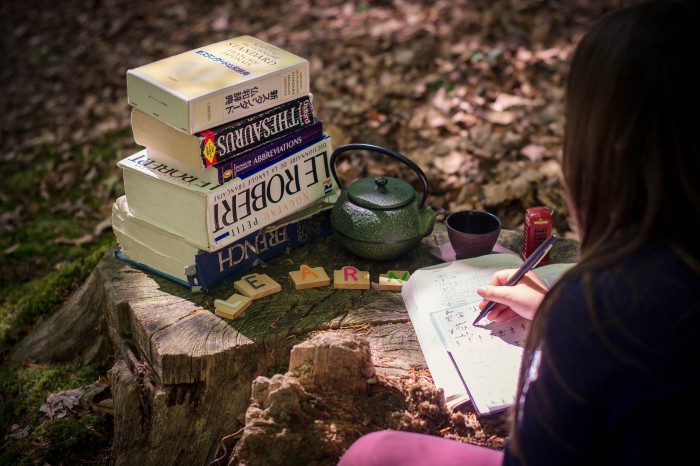Save Endangered Languages, Save Multilingualism?
You probably don’t give a lot of thought to endangered or extinct languages. I mean, why does it matter that some 3,000 languages will be extinct by 2100? After all, that just means globalization is doing its job and humanity is becoming more and more connected, right? Although there is some merit to thinking this way, there are many positives to striving to save endangered languages. The cultural importance of language is one big reason of course, but another is that experts believe saving endangered languages will have the added benefit of encouraging multilingualism. Yes, you read that right, that language that you only hear your grandparents speak anymore, that same language that you can barely understand because other more “important” languages like English and Mandarin have taken over, could be your key to becoming a polyglot!

Image via PhotoPin
“For last year’s words belong to last year’s language. And next year’s words await another voice.” ―T.S. Eliot
Americans and the British are rumored to not really be at the top of their game when it comes to learning foreign languages. However, with the constant influx of people from other countries settling there, you’d be hard-pressed to go anywhere in almost any major city without hearing a variety of different languages. Studies show that the more generations that are born into a country, the more the native language is lost. Second-generation Mexicans might speak Spanish at home with their parents, for example, but by the time they have their own kids English dominates both inside and outside the home and the native language begins to disintegrate.
Of course we don’t really have to worry about Spanish going extinct (for now), but what about other languages? A great example would be the Hakka language in Taiwan. Hakka was originally brought over by people from Hakka-speaking regions of China. Over time, Mandarin began taking precedence as a national language and today very few of the younger generations understand Hakka and even fewer speak it. And because schools focus on Mandarin and English as the must-know languages, children aren’t encouraged to take up Hakka as well, therefore missing out on the opportunity to connect with their own culture as well as add a new language to their roster.
Learning a new language? Check out our free placement test to see how your level measures up!

Image via PhotoPin
“The limits of my language means the limits of my world.” ― Ludwig Wittgenstein
The other side of the migration coin is that many immigrants arrive in new countries with the belief that their native language is a problem and not a solution. The pressure to learn the local tongue can often set in stone the mindset that their native language, different from the country’s where they are now living, is no longer important in the new context living overseas. This leads to some parents “weaning” their child off their native language and immersing him or her in the new language. The key, experts believe, is to convince migrants to assimilate without completely giving up the language of their homeland. If the parents lend importance to a language, the children will do the same, and so on. This way multilingualism will be something that survives across generations.
Indeed, if children don’t speak the language then the language dies out right? Right.
Which is why persuading people that there are massive benefits to retaining a language is so important. Scientists aim to show people that speaking the language of their grandfathers has more ups than downs, mainly that it’s excellent for:
- Mental health
- Gives individuals a wider scope of the world
- Helps them to focus better when doing multiple tasks.
The folklore and culture are also big pros when it comes to retaining a language, but let’s face it: people are often more interested in straight-forward benefits that can help them personally. Of course the biggest bonus of all is that children will grow up multilingual and with an ability to easily learn other languages too! So saving the language of your ancestors really will make you a polyglot.
What do you think? Can endangered languages be saved and is it all worth it in the end? Perhaps your grandparents or even your parents speak a language that you never really considered important before. What do you think about it now?
